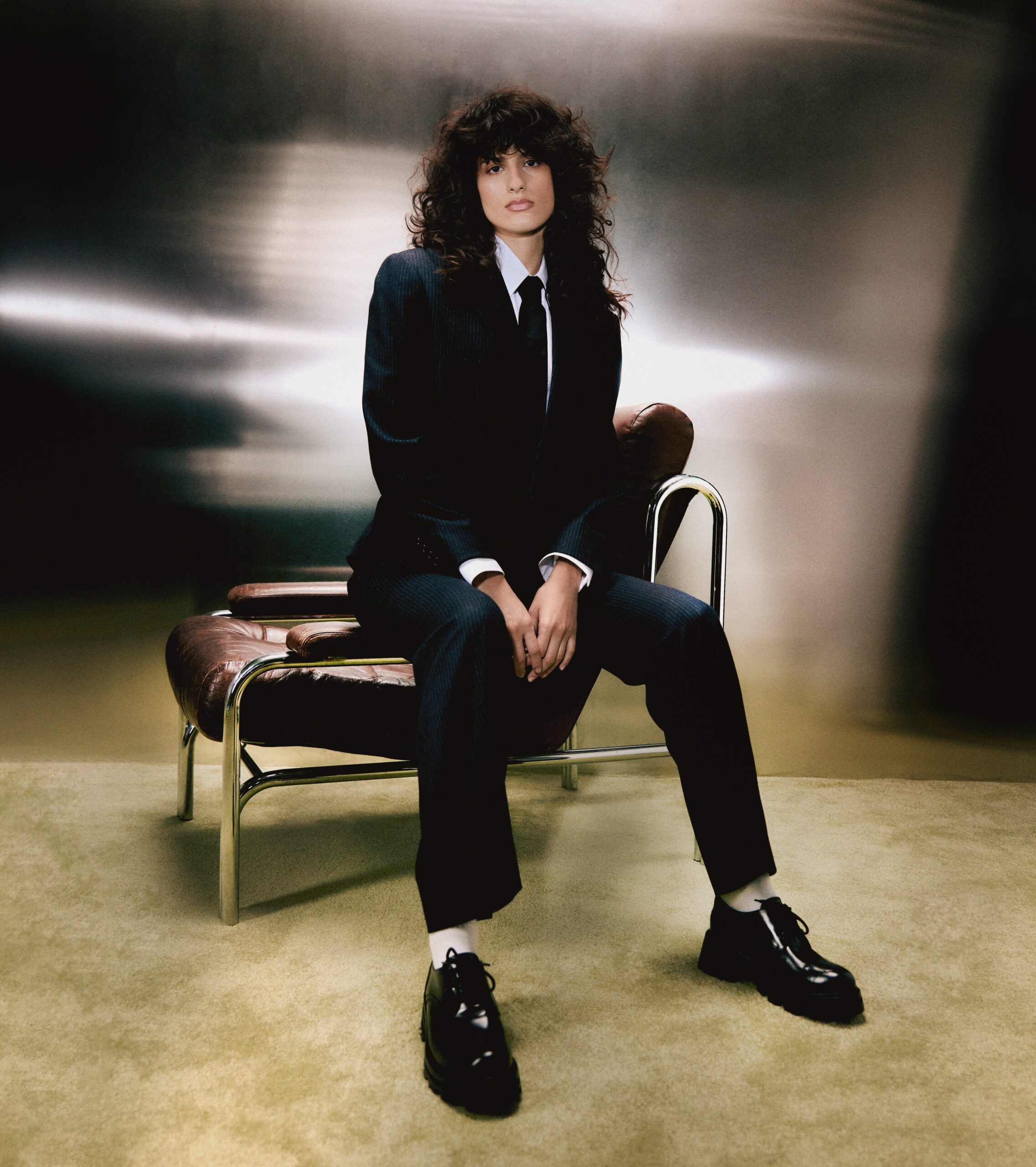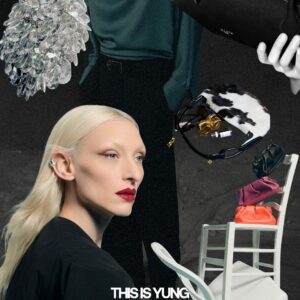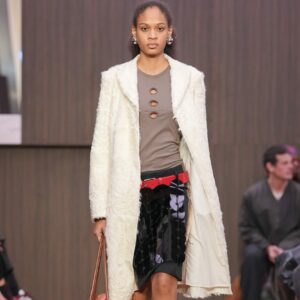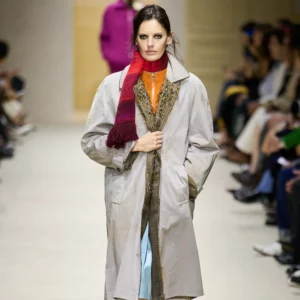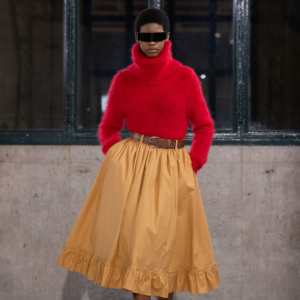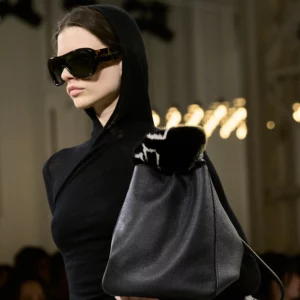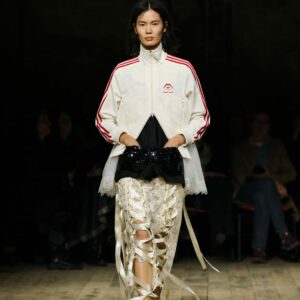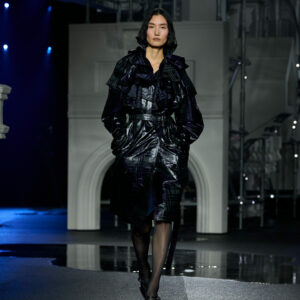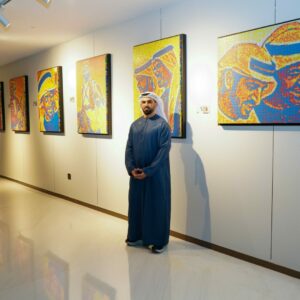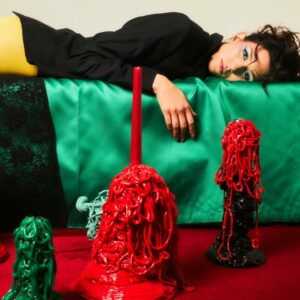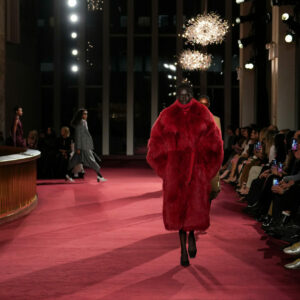Kira Yaghnam (Instagram), a Palestinian-Jordanian actor, is one of those frustratingly talented people. Able to hold a tune, to act, to dance and to play the piano, Yaghnam seems to do it all, and she’s driven to boot. With her debut as the rebellious Hiba in the acclaimed Netflix series Al Rawabi School for Girls, Yaghnam has already captured the attention of audiences both regionally and internationally.

Yaghnam’s journey into the world of performing arts began at the tender age of three, influenced by a family deeply rooted in artistic expression. “My mum’s an actress and my cousin was a dancer,” she recalls. Watching her cousin, her grace and precision, sparked a deep-seated desire to explore dance herself. “I used to watch her dance when I was three, and it clicked in my head. I was like, ‘I want to be doing that, too.’ She inspired me and I quickly just knew I wanted to be on stage and dance and perform,” Yaghnam explains. This early exposure to dance and her family’s artistic inclinations – her mother was also a singer in the 1980s – ignited a passion for the stage, setting her on the path to becoming the versatile performer she is today.
For Yaghnam, the performing arts are more than just a career, they’re a means to stay grounded and connected. “Dance brings me to the present,” she explains, emphasizing the immediate and immersive nature of performing arts that help her maintain a connection to the moment, her body, and her surroundings. Despite her busy schedule, which now includes studying psychology at the University of Nottingham, Yaghnam’s love for dance remains undiminished, “Unfortunately, with the hectic events of life, like starting uni, traveling, moving abroad, I have not had the time to get back into dance, but I really want to. One of my dreams is to just go to London, find a dance studio and explore myself there. Obviously, theatre in London is on the top of my bucket list,” she says.

Yaghnam’s transition from dance to acting was seamless, driven by her involvement in school plays and local theatre. But, aside from a short student film, Al Rawabi School for Girls marked her entry into the world of film and television and it happened right after she graduated high school. “The link was the theatre, the stage,” she notes, emphasizing the natural progression of her acting career. “I started acting, I had a few lead roles in my school plays,” Yaghnam adds. “There’s this casting agency in Jordan that I had always applied to. And so I just auditioned, also a team from the director saw me on Instagram and was like, ‘Yeah, she looks like Hiba.’ So, they brought me in for an audition and they did a few chemistry tests. And then I became Hiba,” she says with a laugh.
In discussing her Al Rawabi character Hiba, Yaghnam touches on the complexities of portraying such a strong, yet vulnerable persona. “At first glance, it may be easy to hate Hiba,” she admits, but through the role, she explores themes of judgement, pain, and ultimately, human frailty. Through it all, Yaghnam has found a personal connection with Hiba, noting similarities in their styles and how they both use appearance as a shield against emotional vulnerability. Speaking of how the character dresses, “It’s much more than a fashion statement, this is Hiba’s way of trying to conceal the pain that people would otherwise see in her eyes,” Yaghnam reflects before saying that maybe that’s something she did herself.
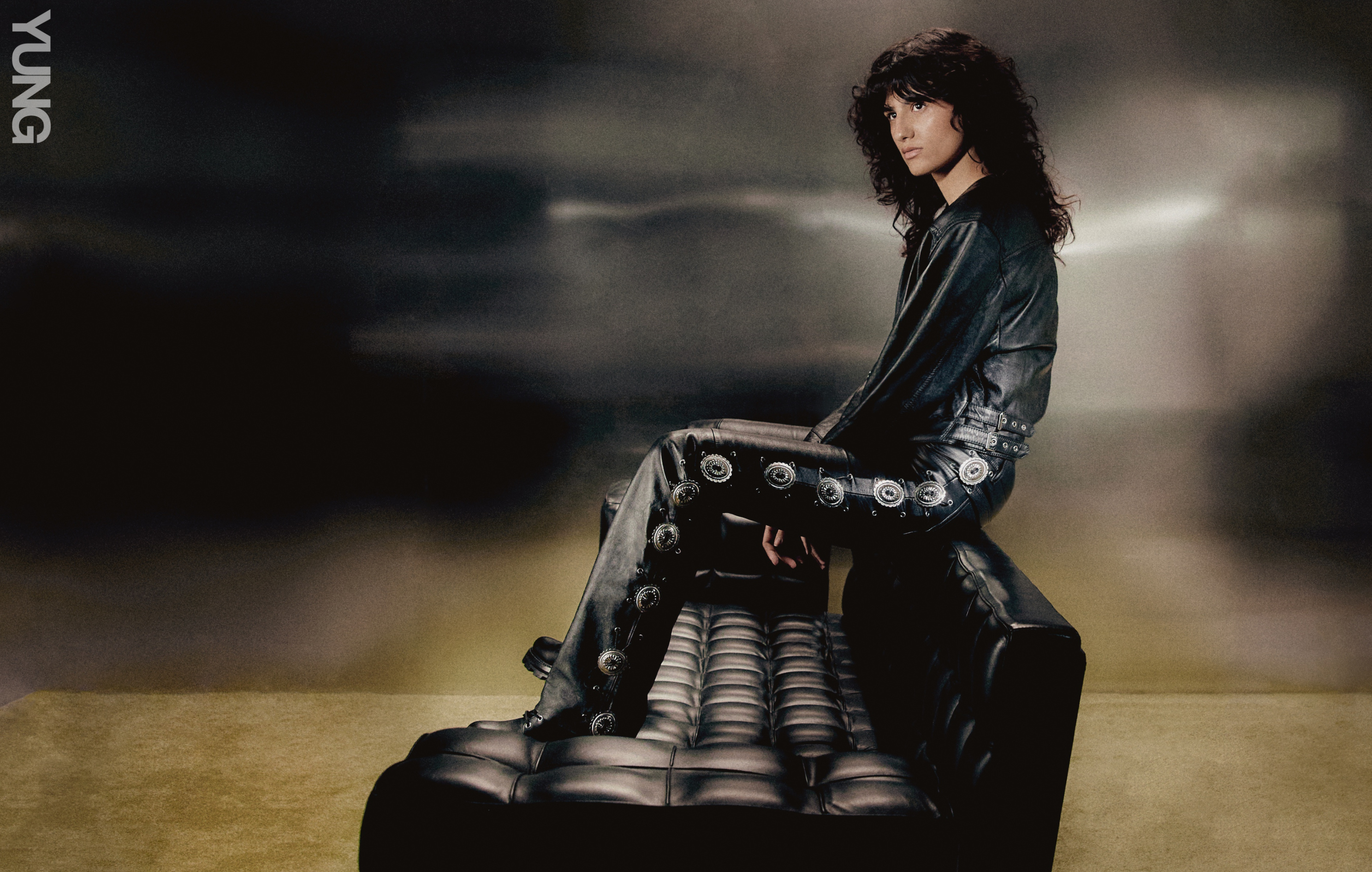
Al Rawabi School for Girls tackles pressing issues faced by teenage girls, from bullying to self-harm. Yaghnam is proud of the show’s impact, pointing to the influx of messages from viewers who felt seen and understood. “A lot of the DMs I receive talk about how the show made them feel like they’re not alone, which is such a comfort,” she says, appreciating the show’s role in initiating difficult but necessary conversations.
In an age where social media facilitates direct interaction with fans, Yaghnam describes her relationship with her audience as something of a “double-edged sword”. Though she then wonders if that’s the right way to put it. While she treasures the connection and the support, she acknowledges the overwhelming nature of such exposure. “I have people telling us they’re so glad bullying in its different forms has been shown in the show, and I get people telling me, ‘I self-harm, too. And now I know I want to go get some help,’” she says slowly. “They’re finally starting to talk about it, especially in our community, where this stuff isn’t usually talked about. So it makes me really happy, but it’s also sad that people are going through that.” However, there’s an ugly side, too, “Yet people, even sometimes after watching the show, they just go on to on to posts about Rawabi, and spew their poison, even people who haven’t watched the show, people are so quick to judge sometimes, they just see a clip on TikTok or Instagram, and just continue judging and hating.”

Yaghnam’s study of psychology intertwines with her acting, as she believes understanding human emotions and motivations enhances her ability to bring depth to her characters. “Acting is where I feel strong in my vulnerability,” she states, discussing how the craft allows her to express and explore emotions that are often suppressed in everyday life. “Through acting, I found comfort in emotional vulnerability, because emotions that you’d usually be judged for in real life, or that I would be judged for, I can comfortably show through my characters and explore without being judged.” Given the emotions elicited by Al Rawabi, psychology seems an apt subject for the young talent.
Looking ahead, Yaghnam aspires to tackle a variety of roles that showcase not only vulnerability, but also the inner strength of her characters. She expresses a particular interest in exploring themes of rage and empowerment, inspired by her experiences and the complex emotions she has navigated in her roles so far. Speaking specifically of women, “Rage shows us that we don’t have to stay composed because that’s what’s expected of us most of the time, to compose ourselves, to not overreact to situations,” Yaghnam passionately explains. “People should be able to experience and healthily express the full range of human emotions. Even though society teaches us from a young age how to try and “channel” our emotions in an “acceptable” way, some people, sometimes, need to let out the strong emotions they are feeling in their own way, which may not be so “socially acceptable,”” she says.

Beyond acting, Yaghnam enjoys a couple of hobbies that keep her engaged away from the cameras. From reading by the beach – her “comfort book” is the less than comforting ‘The Unbearable Lightness of Being” – to baking, “I make a mean banana bread,” she finds joy in the simple pleasures of life. Yaghnam is one of those endearingly irritating people who claim that they have no time, yet fit in so much. After remarking on her lack of time for anything, she reveals that she’s learning the guitar and is also a pianist. You get the feeling that Yaghnam never sits still.
And then there’s the singing, with one particular song written by her mother doing nicely on Instagram, “My mum was a singer. She was actually part of a band called Mirage. They were the most popular band in the 1980s here in Jordan. But yeah, a lot of people knew them because they brought like a new a new kind of pop rock genre to the country that our part of the world wasn’t used to.” The song is called ‘A Nation with Rights’ and was written in 2001, during the Second Inftifada, “I found it relevant, like it’s such a beautiful song, and I found it relevant to what’s happening right now. Because I find it so… painful and sad that she wrote the song in 2001, and things are still horrible and unresolved, and it’s still…” she tails off.

Sitting still or not, one thing she loves is fashion, “I do enjoy fashion. I’ve always found it so satisfying how models walk on the runway. It’s so cool. And I love how symmetrical they are. They walk so symmetrically,” she says with a laugh. “Fashion is another part of art. It’s another part of self-expression. I find it to be really hard. It’s really hard to find good art pieces in the form of clothes, because I’m a very picky person. And it’s hard for me to find stuff that I like, in terms of fashion. So when I find a good runway show or a good magazine cover, and I love the outfit, it just feels so satisfying. It scratches a part of my brain. And yeah, it’s beautiful when done right.” Contemporary, stunning, for our exclusive shoot Yaghnam was dressed in Celine.

Kira Yaghnam represents a new generation of Arab artists who are not only breaking barriers, but who are also bringing authenticity and emotional depth to their performances. As she continues to grow in her career, her journey offers a compelling glimpse into the transformative power of the arts. With each role and performance, Yaghnam not only entertains but also enlightens, making her a true ambassador for her culture and an inspiration to young artists everywhere.


For more stories of art and culture, like this interview with Kira Yaghnam, visit our dedicated archives.
